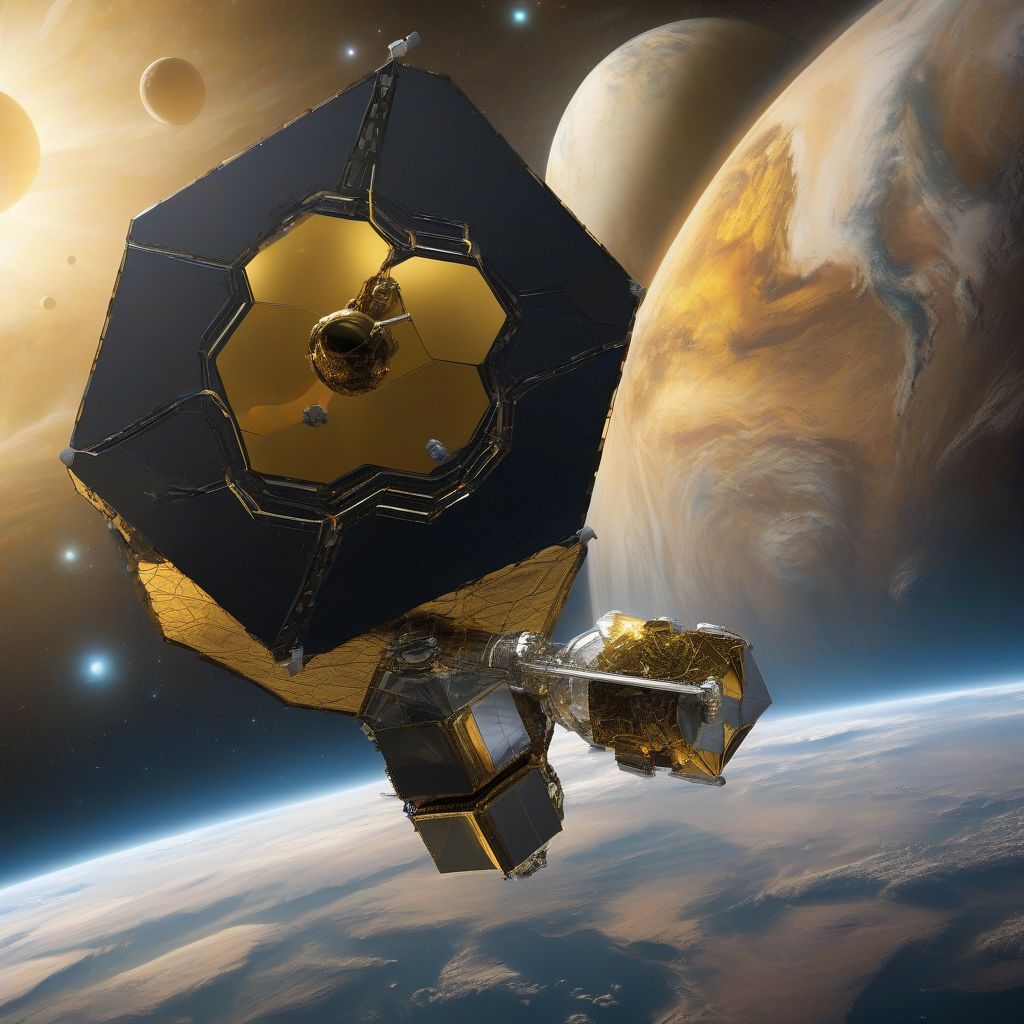For millennia, humans have gazed at the stars, wondering about our place in the cosmos. Each new technological advancement has brought us closer to understanding the universe’s mysteries. Today, the James Webb Space Telescope (JWST) is revolutionizing astronomy, pushing the boundaries of our knowledge further than ever before. Its unprecedented capabilities are providing us with breathtaking images and groundbreaking data, reshaping our understanding of everything from the birth of stars to the atmospheres of distant exoplanets.
A New Era of Cosmic Discovery
The JWST represents a giant leap forward from its predecessor, the Hubble Space Telescope. While Hubble primarily observes visible light, JWST specializes in infrared light. This allows it to peer through cosmic dust clouds that obscure visible light, revealing the hidden nurseries where stars are born. It also allows JWST to observe the light from the earliest galaxies, stretched and reddened by the expansion of the universe.
Unveiling the Early Universe
One of JWST’s primary missions is to study the early universe. By observing the light from the first stars and galaxies, we can gain insights into the processes that shaped the cosmos as we know it. JWST’s deep-field images have already revealed galaxies that formed remarkably soon after the Big Bang, challenging existing theories about galaxy formation. As Dr. Jane Rigby, JWST operations project scientist, stated, “We’re seeing galaxies pop up much earlier than we expected.” This groundbreaking discovery is forcing astronomers to rethink our understanding of the early universe.
Exploring Exoplanet Atmospheres
Another area where JWST is making a significant impact is the study of exoplanets – planets orbiting other stars. JWST can analyze the light that passes through an exoplanet’s atmosphere, revealing its chemical composition. This information can provide clues about the planet’s habitability, and even potentially detect signs of life. JWST’s observations of the exoplanet WASP-96b, for example, revealed the presence of water vapor in its atmosphere, a crucial ingredient for life as we know it.
 James Webb Space Telescope Discovering Exoplanet
James Webb Space Telescope Discovering Exoplanet
Star Formation in Unprecedented Detail
JWST is also providing unprecedented insights into the process of star formation. Its infrared vision allows it to penetrate the dense clouds of gas and dust where stars are born, revealing the intricate details of these stellar nurseries. JWST’s observations of the Orion Nebula, for example, are providing stunning images of young stars emerging from their cocoons of gas and dust. This information is crucial for understanding how stars and planetary systems form.
The Power of Infrared Vision
JWST’s infrared capabilities are key to its revolutionary discoveries. Infrared light has longer wavelengths than visible light, allowing it to penetrate the dust and gas that often obscure visible light observations. This allows JWST to see deeper into the universe and observe objects that are too cool or too faint to be seen by other telescopes.
Peering Through Cosmic Dust
Cosmic dust absorbs and scatters visible light, making it difficult to observe the regions where stars are born. JWST’s infrared vision, however, can penetrate these dusty clouds, revealing the hidden nurseries where stars ignite.
Observing the Redshifted Light of Distant Galaxies
The expansion of the universe causes the light from distant galaxies to stretch, shifting it towards the red end of the electromagnetic spectrum. This phenomenon, known as redshift, makes it difficult to observe these galaxies with visible light telescopes. JWST’s infrared sensitivity allows it to detect this redshifted light, enabling us to study the earliest galaxies in the universe.
A Collaborative Effort
The JWST is a testament to international collaboration, involving NASA, the European Space Agency (ESA), and the Canadian Space Agency (CSA). Thousands of scientists and engineers from around the world contributed to its development and operation. This collaborative effort has resulted in a truly remarkable instrument that is pushing the boundaries of human knowledge.
A Bright Future for Astronomy
The JWST is still in its early stages of operation, but it has already made groundbreaking discoveries that are reshaping our understanding of the universe. As it continues to collect data, we can expect even more astonishing revelations in the years to come. The JWST represents a new era of cosmic discovery, promising to unlock the secrets of the universe and deepen our understanding of our place within it.
Conclusion
The James Webb Space Telescope has ushered in a transformative era for astronomy. Its infrared vision has allowed us to peer deeper into the universe than ever before, revealing the secrets of early galaxy formation, exoplanet atmospheres, and the birth of stars. The JWST’s ongoing mission promises a future filled with awe-inspiring discoveries, fundamentally altering our understanding of the cosmos and inspiring future generations of astronomers. We encourage you to share your thoughts on the JWST’s impact and explore other resources on our site to continue your journey of cosmic discovery.



